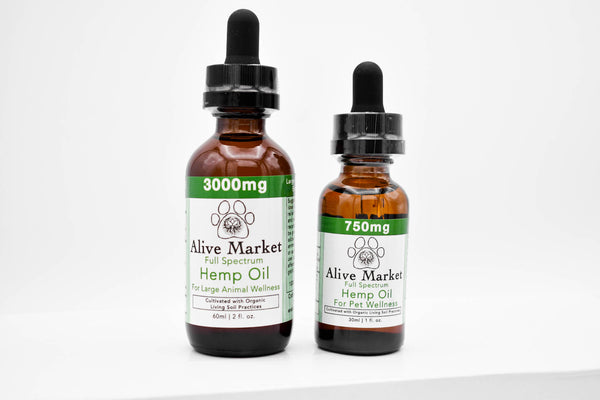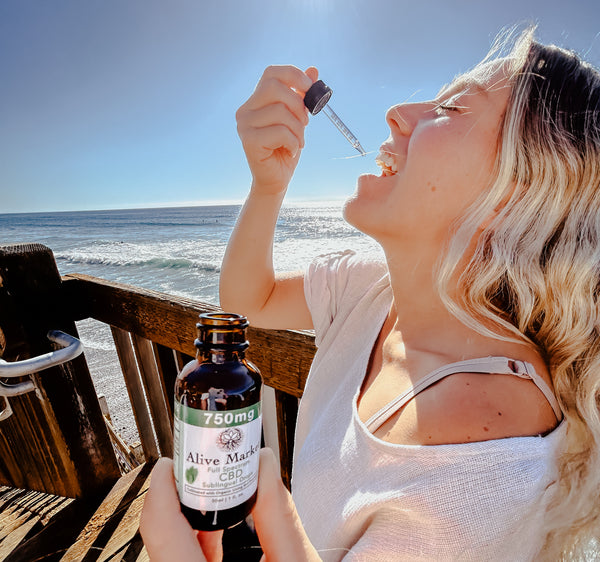Sleep apnea is a serious sleep disorder that affects millions of people worldwide. Characterized by repeated interruptions in breathing during sleep, sleep apnea can lead to significant health problems, including heart disease, stroke, and excessive daytime sleepiness. Traditional treatments for sleep apnea, such as CPAP machines and lifestyle changes, can be effective but aren't always suitable or comfortable for everyone.
In recent years, cannabidiol (CBD) has gained popularity as a natural remedy for various health issues, including sleep disorders. CBD, a non-psychoactive compound derived from the cannabis plant, is known for its potential to promote relaxation, reduce anxiety, and alleviate pain. These properties have led many to wonder: Can CBD help manage sleep apnea symptoms? Can CBD treat sleep apnea?
In this article, a sleep medicine expert discusses what CBD is, whether it might be able to treat sleep apnea, and how you can find sure relief from your sleep disorders. Whether you're a sleep apnea sufferer looking for alternative treatments or simply curious about the benefits of CBD, this guide will provide you with valuable insights and information.
Understanding Sleep Apnea
Sleep apnea is a common but serious sleep disorder that causes repeated interruptions in breathing during sleep. These interruptions, called apneas, can last from a few seconds to a minute and can occur many times throughout the night. Sleep apnea is not a condition that you want to ignore for too long. If you suspect that you're suffering from sleep disordered breathing, it is highly recommended that you reach out to a sleep apnea expert to ask about having a sleep test performed.
Types of Sleep Apnea
Obstructive Sleep Apnea (OSA)
Obstructive Sleep Apnea is the most common form of sleep apnea. Obstructive Sleep Apnea occurs when the soft tissues at the back of the throat relax excessively, causing a temporary blockage of the upper airway. This blockage restricts airflow, leading to disrupted sleep and reduced oxygen levels in the blood.
OSA is a potentially lethal disease that increases the risk of numerous health complications including hypertension, congestive heart failure, coronary artery disease, stroke, and type 2 diabetes.
Central Sleep Apnea (CSA)
Central Sleep Apnea is less common and occurs when the brain fails to send proper signals to the muscles that control breathing. Unlike OSA, there is no physical blockage; instead, the problem lies in the communication between the brain and the muscles that control breathing.
Complex Sleep Apnea Syndrome
Also known as treatment-emergent central sleep apnea, this condition is a combination of both obstructive and central sleep apnea. It typically develops when someone being treated for OSA with a CPAP machine develops CSA symptoms as well.
Symptoms of Sleep Apnea
- Loud Snoring: One of the most noticeable symptoms of sleep apnea, particularly with OSA, is loud and persistent snoring, often interrupted by periods of silence followed by gasping or choking sounds.
- Choking or Gasping During Sleep: These episodes can wake the person up and disrupt their sleep cycle.
- Excessive Daytime Sleepiness: Due to the frequent interruptions in sleep, individuals with sleep apnea often feel excessively sleepy during the day, which can affect daily activities and increase the risk of unintended consequences such as motor vehicle accidents.
- Morning Headaches: Frequent morning headaches can result from low oxygen levels and interrupted sleep.
- Difficulty Concentrating: Poor sleep quality can lead to problems with attention, concentration, and memory.
- Irritability: Sleep deprivation often results in mood swings and irritability.
Health Risks Associated with Untreated Sleep Apnea
Untreated sleep apnea can lead to several serious health issues, including:
- Cardiovascular Problems: The repeated episodes of low oxygen levels can strain the cardiovascular system, increasing the risk of high blood pressure, heart attack, stroke, and atrial fibrillation (irregular heartbeats).
- Diabetes: Sleep apnea is associated with insulin resistance and type 2 diabetes.
- Metabolic Syndrome: A cluster of conditions, including high blood pressure, abnormal cholesterol levels, high blood sugar, and an increased waist circumference.
- Liver Problems: Individuals with sleep apnea are more likely to have abnormal liver function and nonalcoholic fatty liver disease.
- Daytime Fatigue: Persistent sleepiness can lead to work-related accidents, poor job performance, and vehicle accidents.
Understanding CBD
Cannabidiol (CBD) is one of the many compounds found in the cannabis plant, known for its potential therapeutic benefits. Unlike tetrahydrocannabinol (THC), the primary psychoactive component of cannabis, CBD does not produce a "high."
What is CBD?
CBD is a natural compound extracted from the hemp variety of the cannabis plant. It is one of over 100 cannabinoids identified in cannabis and is second only to THC in terms of abundance. CBD is valued for its potential health benefits, including its ability to reduce anxiety, alleviate pain, and relieve insomnia symptoms without causing intoxication. While CBD can help you fall asleep quickly, relieve stress, and manage sleep disordered breathing, it also causes your muscles to relax.
Forms of CBD Products
CBD is available in various forms, each offering different benefits and methods of consumption.
- CBD Oils and Tinctures: Liquid extracts that are taken sublingually (under the tongue) for quick absorption. While CBD oil is generally safe for consumption, there are a few things that you should be aware of before using it for sleep apnea. First, it causes minor side effects like fatigue, diarrhea, loss of appetite, dry mouth, and drowsiness.
- CBD Capsules and Edibles: Pills, gummies, and other food products infused with CBD offer a convenient and discreet way to consume.
- CBD Vapes: Inhaled through a vaporizer, providing fast relief as the CBD is quickly absorbed into the bloodstream through the lungs.
- Topical CBD Products: Creams, lotions, and balms applied directly to the skin, useful for localized relief from pain or inflammation.
Potential Benefits of CBD
CBD is being researched for its potential to help with various health issues, including:
- Anxiety and Stress: Studies suggest that CBD can help reduce anxiety and stress, improving overall well-being.
- Pain Relief: CBD's anti-inflammatory and analgesic properties make it a popular choice for managing chronic pain.
- Sleep Disorders: CBD may improve sleep quality by promoting relaxation and reducing anxiety, making it a potential aid for treating sleep apnea.
Ways To Manage Sleep Apnea
Sleep apnea can be frustrating and dangerous, causing restless nights and fatigue throughout the day. However, there are several ways to manage and alleviate sleep disordered breathing and sleep apnea symptoms. Some of the most effective techniques include:
1. Sleep on your side
If you're dealing with the frustrating symptoms of sleep apnea, you may wonder how to help alleviate them. One potential solution is to sleep on your side instead of your back. This simple change can help to keep your airway open throughout the night, reducing the likelihood of collapsing and the subsequent symptoms.
If you struggle to stay put in your sleep, don't worry; there are options to help. A body pillow or wedge pillow can give you the extra support you need to stay in a side-sleeping position all night.
2. Lose weight
Carrying excess weight can have a multitude of adverse effects on your health. Sleep apnea is one of the most notable conditions that can be exacerbated by being overweight. The soft tissue around the neck can narrow the airway, making breathing more difficult during sleep.
However, the good news is that even losing just a few pounds can significantly reduce the severity of sleep apnea. Shedding some excess fat can help alleviate the pressure on your airway and improve airflow, leading to better quality sleep and overall health. So, if you suffer from sleep apnea and are carrying some extra pounds, consider a weight loss plan to see if you can find some relief.
3. Avoid alcohol and smoking
Sleep apnea can be a frustrating condition that can disrupt a good night's sleep. While many factors can contribute to sleep apnea, alcohol and smoking are two things that can make it worse. Alcohol and smoking can both relax the muscles in the throat, leading to blocked airways and more pronounced sleep apnea symptoms.
4. Use a humidifier
Sleep is essential for our mind and body to function correctly. However, snoring can significantly impact our sleep quality, leaving us tired and irritable. Fortunately, using a humidifier at night can provide a simple yet effective solution to this problem.
The moisture that a humidifier adds to the air can help to keep our throat lubricated, reducing snoring and preventing the throat from getting too dry. Not only can this lead to a better night's sleep, but it can also help to ease symptoms of allergies and asthma, making breathing easier overall.
5. Continuous Positive Airway Pressure (CPAP Machine)
Finding an effective treatment can be a life-changing experience for those who suffer from sleep apnea. You have more options than ever to treat obstructive sleep apnea. A CPAP machine is the most traditional method of treating sleep apnea. It delivers a steady stream of air through a mask worn over the mouth or nose to prevent breathing disruptions.
This CPAP machine delivers a gentle flow of air pressure through a mask worn during sleep, effectively keeping the airways open and eliminating the disruptive snoring and apnea that can lead to disrupted sleep and other health complications. With CPAP machine, many patients experience significant improvements in their quality of life, better sleep, and increased energy throughout the day.
6. See your doctor
Dealing with sleep apnea can be incredibly frustrating, as it's a condition that affects not only your nighttime rest but also your overall health and well-being. If you struggle to manage your symptoms alone, seeking medical treatment from healthcare providers or sleep medicine expert is essential.
Don't feel discouraged or hopeless; there are countless treatment options out there that have helped people get their sleep apnea under control. By working closely with your doctor or a sleep medicine expert, you can find the best solution and get the restorative sleep you deserve.
7. Use CBD for a good night's sleep
There's nothing quite like a good night's sleep to help you feel refreshed and ready to take on the day. Unfortunately, a good night of slumber can be hard to come by for those who suffer from sleep apnea. That's where cannabidiol (CBD) comes in.
This natural compound is believed to help reduce inflammation and promote relaxation throughout the body, making it an excellent option for those struggling with sleep apnea.
Whether taken in capsule form, as a tincture or even applied topically, CBD for sleep apnea has been shown to improve overall sleep quality and reduce sleep apnea symptoms. So if you're tired of feeling groggy all day, why not try CBD and finally get the great night's rest you deserve?
In conclusion, holistic sleep apnea management offers a comprehensive and integrated approach to addressing the complex challenges of this sleep disorder. CBD, with its potential to reduce inflammation, alleviate anxiety, and promote relaxation, holds promise as a valuable component of this holistic approach. By embracing holistic principles and incorporating CBD as part of a personalized treatment plan, individuals with sleep apnea can take proactive steps towards improving their sleep quality and overall well-being.





